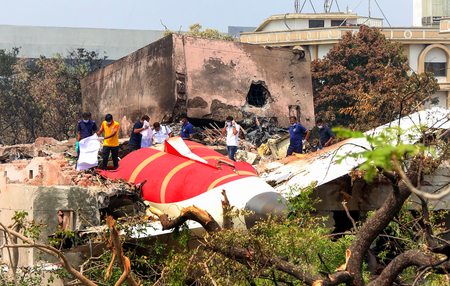Mumbai: Aviation watchdog DGCA Monday directed airlines to inspect the fuel switch locking system in their Boeing 787 and 737 planes, two days after AAIB’s preliminary report said fuel switches were cut off before the Air India plane crash that killed 260 people last month.
There are more than 150 Boeing 737s and 787s being operated by Indian airlines. Air India, Air India Express, Akasa Air, SpiceJet and IndiGo are the domestic carriers operating these aircraft.
Of these, IndiGo has seven B737 Max 8 and one B787-9. All these are leased planes-either on wet or damp lease– and so are not registered in India.
The Federal Aviation Administration (FAA), back in 2018, had flagged the potential disengagement of the fuel control switch locking feature on certain models of Boeing aircraft, including 787s and 737s.
It was mentioned in a Special Airworthiness Information Bulletin (SAIB), but there was no airworthiness directive, indicating that the issue was not a safety concern.
Monday, the Directorate General of Civil Aviation (DGCA) said it has come to its notice that several operators- internationally as well as domestic – have initiated inspection on their aircraft fleet as per the FAA’s SAIB.
“… all airline operators of the affected aircraft are hereby advised to complete the inspection… no later than 21st July 2025. Inspection plan and report after accomplishment of inspection shall be submitted to this office under intimation to concerned Regional Office,” the Directorate General of Civil Aviation (DGCA) said in an order.
Fuel control switches regulate the flow of fuel into the aircraft engines. In its preliminary report on the Boeing 787-8 crash released Saturday, the Aircraft Accident Investigation Bureau (AAIB) said the fuel supply to both engines of the plane was cut off within a gap of one second, causing confusion in the cockpit soon after takeoff.
“In the cockpit voice recording, one of the pilots is heard asking the other why did he cut off? The other pilot responded that he did not do so,” the report said.
AAIB, which mentioned about FAA’s SAIB in the report, did not suggest any recommended action.
Air India Group has already started checks of the fuel switch locking system in their Boeing 787 and 737 aircraft.
Sources said the checks of the locking system in more than half of Air India’s Boeing 787s have been completed while the checks are almost complete with respect to Boeing 737s.
Tata-owned Air India has a total of 33 wide-body Boeing 787s, while Air India Express has around 75 narrow-body 737s.
The sources said the group initiated the voluntary exercise as a precautionary measure.
Akasa Air and SpiceJet operate Boeing 737s. IndiGo also operates Boeing 787 and 737s but they are leased from foreign airlines, which means they won’t be subject to the DGCA directive.
In the wake of the AAIB report, globally, some airlines, including Etihad Airways, have initiated steps for inspection of the fuel switch locking system in their Boeing 787s.
Air India flight AI 171, operated with Boeing 787-8, enroute to London Gatwick crashed soon after takeoff from Ahmedabad on June 12, killing 260 people.
PTI






































